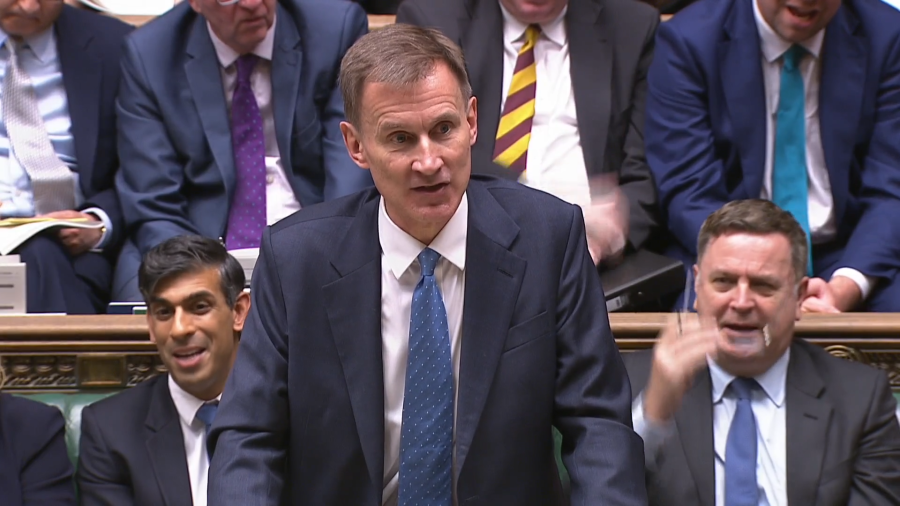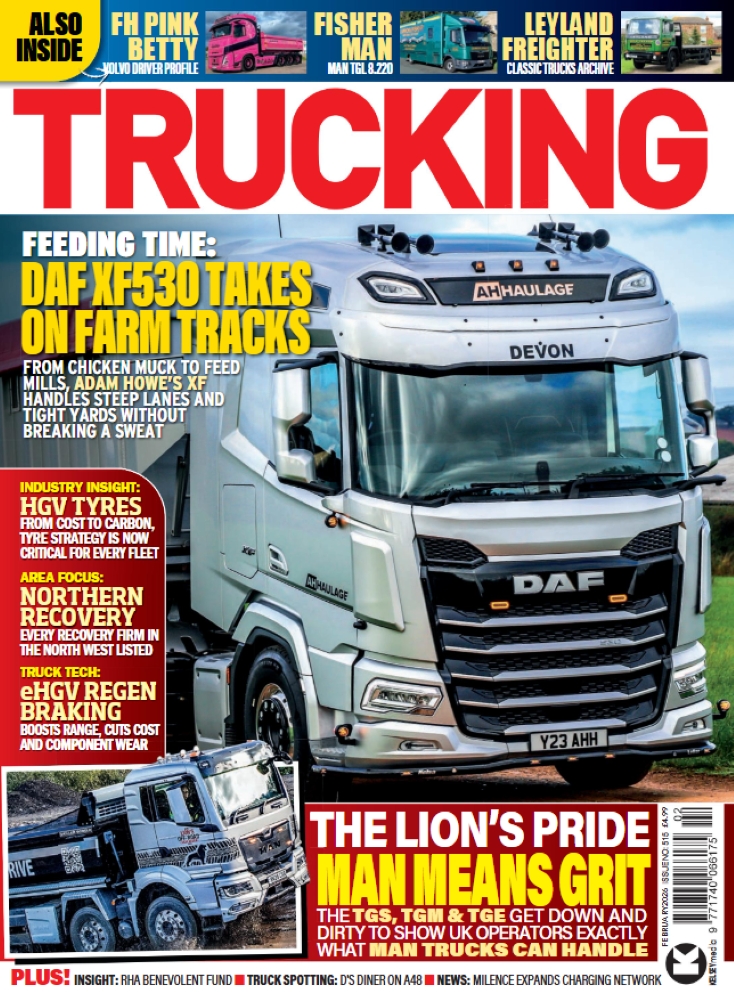LOGISTICS UK
The Autumn Statement contains encouraging signs for logistics businesses looking to drive recovery in the economy. Still, according to business group Logistics UK, the detail of the Chancellor’s proposals will show whether or not the industry will see real changes as a result. Speaking about today’s speech, David Wells OBE, Logistics UK’s Chief Executive, says:
“The decision to make the current full expensing allowance for capital permanent is a welcome step to support logistics businesses with long-term planning and investment. Our members are keen to identify if this change will include the cost of acquiring leased or hired vehicles and those purchased outright. In addition, detail is needed to identify whether the move will cover the cost of installing the infrastructure required to help the industry decarbonise, as our research shows this could amount to an outlay of up to £1 million per site – a prohibitive charge which will hinder the industry’s shift to net zero.”
News that the planning system is to be streamlined has also been welcomed by the business group, which has been pressing for changes to be made to enable logistics businesses to plan more efficiently for some time.
“Since our industry supplies every sector of the economy, it is vital that logistics is included as part of the overall planning process, not as a bolt-on afterthought,” continues Wells. “We will continue to press government to keep us at the heart of decision-making when it comes to business investment and development.”
Logistics UK continues to seek detail on how plans for Investment Zones and Freeports are to be implemented, as well as on ways the industry can be assisted on the route to decarbonisation.
“The devil of today’s announcement will be in the detail,” continues Wells. “While there are indications that the statement could boost economic activity, our members are concerned about how Freeports and Investment Zones could work for them. In addition, businesses still need clarity on the support government will be providing for the transition to a net-zero economy, and we will be working closely with them in the coming weeks to ensure the best possible outcomes to keep the UK trading, both domestically and internationally.”
Road Haulage Association
The Autumn Statement has welcome news for the road transport industry on Vehicle Excise Duty (VED), business investment and planning reforms.
We are delighted the Chancellor has listened to RHA’s campaigning efforts on several fronts. Hauliers and coach operators keep goods and people moving – and are vital to our economic vitality.
We are pleased to see VED for HGVs and the HGV levy frozen for 2024-25. This follows our recent campaigning and will support hauliers who are facing significant cost pressures. The cost of operating an HGV has risen by nearly 10% over the past 12 months in the face of thin average margins of just 2%.
Our industry is experiencing reduced activity and fewer goods being moved due to cost-of-living challenges. Road freight volumes are down by 10% and we have seen an increase in insolvencies with reduced profitability.
We welcome the announcement on full expensing to make the change announced in the Spring Budget permanent. Firms will be able to claim back the tax on buying new plant and machinery, including vans, lorries and warehousing equipment.
We are also pleased that that the Chancellor acknowledged concerns that planning is often a barrier to investment in major infrastructure. The introduction of a premium planning service with guaranteed accelerated decision dates for major applications and new powers to hold councils to account is welcome. A strong network of safe, secure roadside truck parking facilities is a key priority for us.
The new Investment Zone deals are much needed and we urge that they’re supported with high-quality road infrastructure.
We also support Government action in creating more certainty for investors in low-carbon infrastructure. This is through extending the critical national priority designation for nationally significant low-carbon energy projects.
We continue to call on the Government to introduce an emissions-linked rebate to encourage hauliers and coach operators to switch to low-carbon fuels such as HVO.
Finally, the £2 billion funding being made available to support the manufacturing and development of zero-emission vehicles is welcome, however we need to see more concrete plans on how this funding will be targeted towards commercial vehicles.
We will be examining the detail of today’s announcements and continue working closely with the Government and the Opposition ahead of next year’s General Election.
David Bushnell, Director of Consultancy and Strategy, Fleet Operations
Chancellor Jeremy Hunt has begun flicking through the pages of the pre-election playbook to announce measures in his Autumn Statement, designed to help stimulate business growth.
But for fleet operators, his notable failure to cancel the planned fuel duty increase next April will dampen any early festive cheer. If this goes ahead, the first rise in over a decade would come at a time, in the wake of a cost of business squeeze, when fleets can least afford it.
Making the full expensing capital allowance tax scheme, introduced in the last Budget, permanent certainly comes as welcome news, helping to support many fleets’ bottom line and transitioning to e-mobility.
However, it is only cash-rich business with access to capital that benefit. Failing to extend the scheme to the leasing and rental sectors continues to prove a missed opportunity to support the wider fleet industry, and its critical role in driving business investment and transport decarbonisation.
Following the recent decision to delay the ban on the sale of petrol and diesel cars and vans, there had been high hopes that the Chancellor would announce significant measures to help counteract this impact by incentivising EV adoption. But this could have been more forthcoming in any meaningful way, and once again, has proved a missed opportunity.
Gerry Keaney, Chief Executive BVRLA
In today’s Autumn Statement, Chancellor Jeremy Hunt confirmed that full expensing would be made permanent but retained the historic exclusion of the vehicle rental and leasing sectors. A formal government consultation into if the exclusion could be removed in the future was confirmed, following the creation of an industry working group earlier this year.
“The Government is banking on permanent full expensing to unleash a wave of new business investment across the UK, but by excluding rental and leasing it is missing a massive opportunity. Our research shows that opening these powerful tax incentives up to the rental and leasing sectors could unlock an additional £1bn worth of investment into low and zero-emission commercial vehicles.
“We will continue to work closely with HM Treasury and HMRC on their technical consultation and push for the unfair vehicle rental and leasing exclusion to be removed.”
Paul Hollick, chair, Association of Fleet Professionals
“The public finances are in slightly better shape than expected, and inflation is now below the prime minister’s stated 5% target, so this Autumn Statement was very much about cementing the idea – if not necessarily the reality – of economic recovery ahead of next year’s election.
“The measures taken, especially those to encourage investment, are to be welcomed in general terms, and some businesses operating fleets will no doubt take advantage of them. However, it doesn’t change the underlying truth that the economy remains in pretty poor shape and that while inflation is falling, it remains relatively high. There’s also little to support the motor industry or the fleet sector specifically. However, the £2bn allocated to EV manufacturing will be welcomed, and the charger planning changes could potentially speed rollout.”
Andrew Galliers, Director and Head of the Transport & Logistics team at Menzies LLP
A mixed Autumn Statement today from the Chancellor is clearly geared towards capital-intensive industries and attracting investment into the UK whilst including some welcome measures that could benefit the Transport & Logistics Sector.
‘Full-expensing’, which came in on April 1st 2023 and replaced the super-deduction, has now become a permanent measure and will no longer end on 31 March 2026. This is a welcome measure to obtain tax relief on capital spend and boost future investment on assets such as robotics systems/AI and plant and machinery.
For innovative transport and logistics businesses that are developing their own high-tech solutions, the two existing R&D tax relief schemes will be merging into a single scheme from April 2024 onwards which should assist in simplifying the regime in future.
The Government also announced funding for a two-year apprenticeship pilot may help encourage recruitment within the transport and logistics industry narrowing the skills gap that has developed. In addition the Vehicle Excise Duty (VED) and Heavy Goods Vehicles (HGV) levies have also been frozen in line with RPI for another year from 1 April 2024.
Finally, In a benefit to aid long-term business plans, the Government has also extended the duration of the tax reliefs available in Freeports from 5 years to 10 years, (these measures were due to end in 2026), which include:
- Enhanced capital allowances – which include 100% on plant and machinery assets and enhanced structures and buildings allowances (10% relief as opposed to 3%)
- Reduced rates of employer NICs
- Stamp duty land tax – up to full relief
- Full business rates relief
Peter Golding, Managing Director, FleetCheck
“This is probably the kind of Autumn Statement you’d expect from a government facing a general election sooner rather than later. Its big moves were the NI cut, designed to make consumers feel as though their finances are improving, and the full capital expensing, designed to boost investment and the economy. All of these are reasonable moves and should have some positive effects. Still, there was little here that will help the fleet industry specifically, and the general backdrop is one where the drag and damage caused by everything from Covid to Brexit have all had very real effects. The next couple of years will be difficult for fleets, with budgets under pressure and an ongoing need to minimise costs, although we are sure that fleets managers will show their customary ingenuity and dedication in tackling these issues .”






